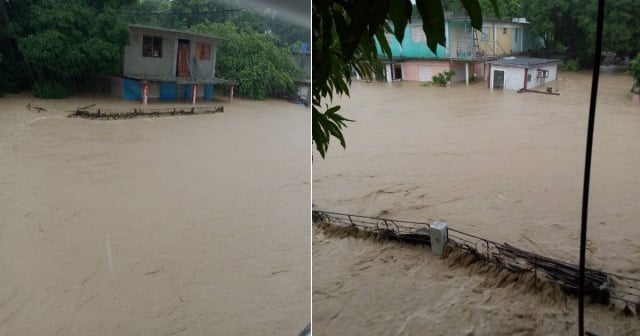During Miguel Díaz-Canel's visit to Batabanó, a coastal municipality in the province of Mayabeque, a strong security presence was evident that characterized the interaction of the leader with the local population.
In the images shared on social media, Díaz-Canel is seen briefly conversing with local leaders, hastily greeting some residents, and quickly getting into the vehicle that was transporting him, without allowing for prolonged interaction with the citizens.
User Alberto Ramos commented on Facebook about the ruler's visit: "The show of the setup," while posting a video that evidenced the staging of the meeting.
According to Ramos, to simulate a warm reception, a truck with 30 "clarias" (a colloquial term referring to people linked to the government or mobilized by the government to simulate popular support at public events) was transported from another municipality, intending to create the appearance of abundance.
Additionally, he reported that security measures prevented the population from approaching the leader freely, limiting any spontaneous contact.
These types of visits are part of an official narrative that seeks to project a closeness between the government and the people, while in practice, there is a rigorous control of the ruler's public image, minimizing any opportunity for the genuine expression of citizens, as happened this Wednesday in Guantánamo.
During his visit to San Antonio del Sur, Díaz-Canel was confronted by several residents who demanded attention to basic needs amidst a humanitarian crisis, worsened by the passing of Tropical Storm Oscar in recent days.
A man in charge of 29 children at a special school reported that the government took them to that facility and abandoned them, just before Oscar made landfall on October 20.
The statement was made in the context of the severe floods caused by the cyclone, which left a preliminary toll of seven deaths in that Guantanamo municipality.
A Cuban mother also confronted the leader, reporting that her family had been without water and food for days. The woman, visibly desperate, expressed her frustration at the lack of aid following the impact of Hurricane Oscar.
These incidents add to the criticism of the government's management in the face of the crisis that has left many Cubans in extreme situations of vulnerability. Public outrage seems to be on the rise, reflecting an increasing gap between the government's promises and the reality experienced by citizens in their daily lives.
What do you think?
COMMENTFiled under:
